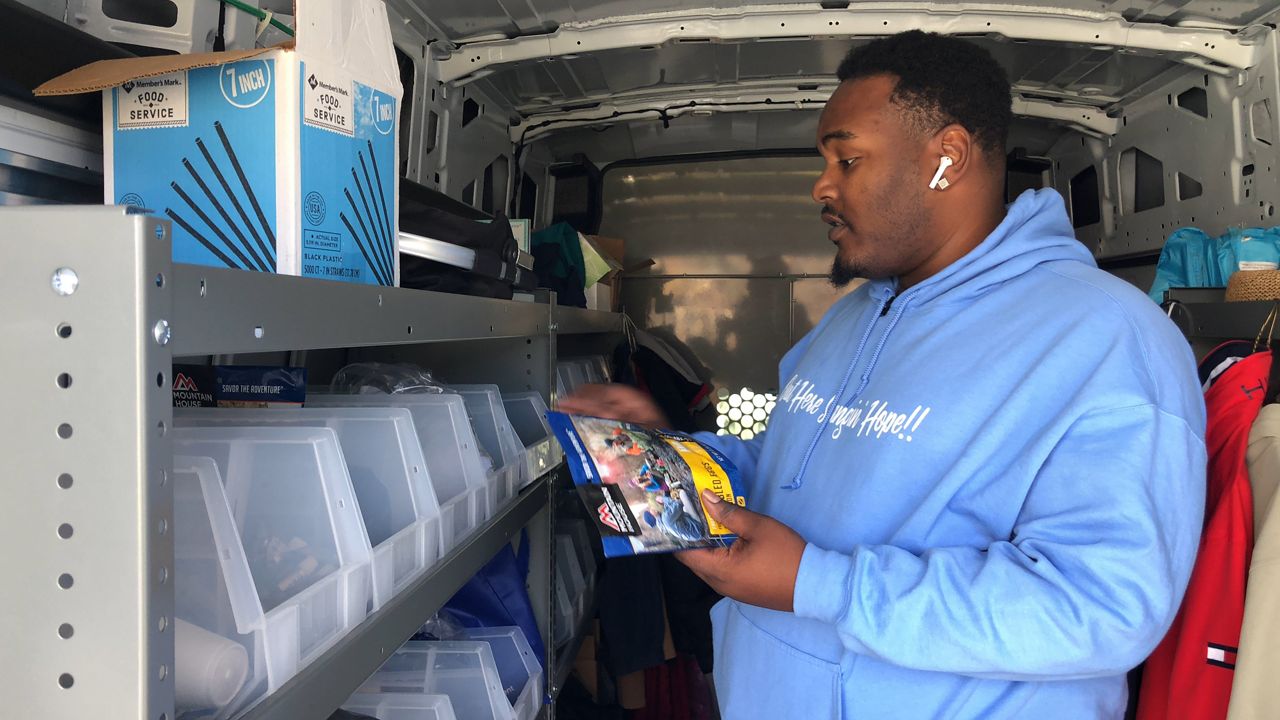LEXINGTON, Ky. — Opioid misuse in Kentucky has been a long-standing battle.
A newly published study has shed light on increased deaths in opioid overdose among Black individuals.
What You Need To Know
- A newly published study found opioid overdose death rates increased by 40% among non-Hispanic Black individuals
- Gary Biggers is a recovery coach who helps people overcome addiction
- Biggers battled his own addiction out of opioid misuse
- The studies surveyed populations in Kentucky and three other states
In a recent study in the American Journal of Public Health, experts found opioid overdose death rates increased by 40% among non-Hispanic Black individuals between 2018 and 2019, despite having leveled off overall.

"I try to help them get in recovery or to stay in recovery," said Gary Biggers, a 30-year-old who coaches for Voices of Hope and travels all across the state to bring resources to people battling addiction.
Biggers started using opioids recreationally 10 years ago. At the time, he said it didn't seem like a problem. But it turned into a problem.
"I was shot in 2011. So I was hospitalized and I had to take opioids and they did not... they misdiagnosed me, but it just wasn't enough, so I had to seek it on my own and I became dependent. And that's when I became addicted after that," Biggers said.
His dependency grew on the pills, leaving him without a way out. But some time later a friend encouraged him to begin rehab to turn his life around.
"Ultimately, I didn’t want to live like I was living. I was isolated, I didn’t have any friends, I barely talked to my family," Biggers said. "I didn’t want to live like that anymore."
As a recovery coach now, he lifts people out of their addiction to opioids using his firsthand knowledge of the struggle. He said leading recovery often feels like a "win-lose situation."
"You get to see the people whose lives changed and then you get to see the people who just couldn't get this thing down. And I lost a lot of good friends – like friends that I’ve met in recovery that returned to use. And they never made it back, sadly," Biggers said.
The studies show a new shift disproportionately affecting the Black community, according to the University of Kentucky. They report death rates from opioid overdoses among Black individuals rose to 57% in Kentucky from 2019-2020.
All this makes Biggers' work that much more crucial.
"That's just the worst part about it. Because I can't do it for him," he said. "I can't make them. I can't keep them sober myself. I can't I can do as much as I can for him but I can't do it for him. Ultimately it has to be a decision they make."
The American Journal of Public Health studied 8.3 million people in four states, including Kentucky, which are disproportionately affected by opioid overdose.



